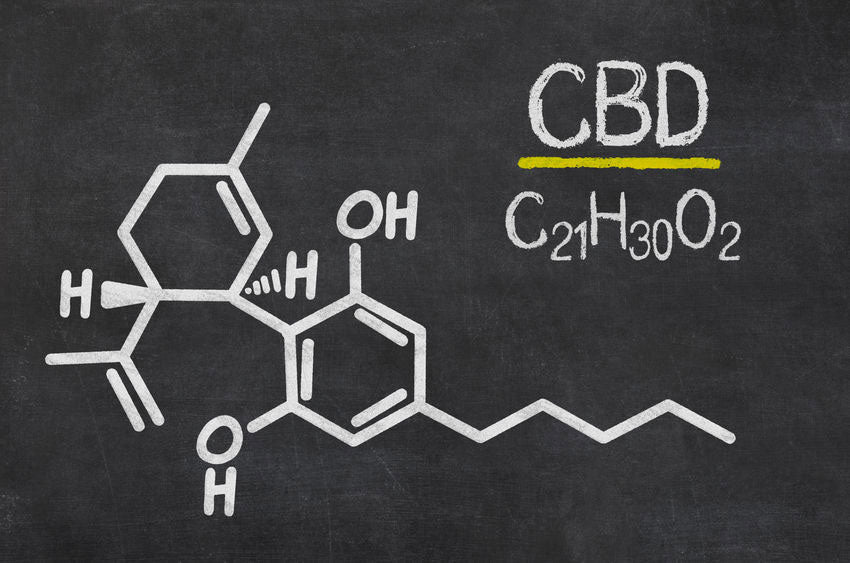
The ECS, CBD and the Immune System
These days, it’s more important than ever to maintain strong immunity and do what it takes to make the immune system as strong as possible.
Getting regular exercise and plenty of sleep, staying hydrated, eating fresh fruits and vegetables, not smoking, drinking alcohol in moderation and frequently washing your hands are all beneficial for strengthening the immune system.
Did you know that the endocannabinoid system (ECS) plays a large role in immune function?
It’s true! Ensuring your endocannabinoid system is strong and healthy could help ensure immunity is strong and healthy.
Here we’ll take a closer look at how the ECS supports immunity and how supporting the ECS might lead to a stronger immune response.
Understanding the Basics of Immunity
Before we get too deep into the endocannabinoid system and how it might help support immune function, it’s important to have a basic understanding of immunity itself.
To stay strong and healthy, it’s vital to keep toxins and pathogens as far away from making their way into the body as possible. This just so happens to be the job of the immune system.
One of the major roles of the immune system is to evaluate what’s “good” and what’s “bad” coming into the body. If something “bad” does happen make its way in, the immune system works to destroy whatever it is before it can do lasting damage.
When the immune system is healthy, it’s all systems go. Viruses and other nasty intruders are kept at bay or kicked to the curb before they can truly take a toll. On the other hand, a not-so-healthy immune system doesn’t have the defenses to keep these toxins out nor the strength to fight them off when they make their way in. This is why the flu and other illnesses can be so dangerous to individuals with a compromised immune system.
It’s suggested that one way to achieve a balanced state of healthy immunity and regulate immune function is through the endocannabinoid system.
What role does the endocannabinoid system play in immune health? Let’s take a deeper look.
Immune Function and the Endocannabinoid System
Referred to as the most important physiological system that exists, the endocannabinoid system is potentially responsible for a number of different functions including mood, memory, sleep, digestive function, metabolism, appetite, immune function and more.
At the most basic level, the ECS consists of the following:
° Two naturally-occurring endocannabinoids, anandamide and 2-AG.
° Enzymes that synthesize and degrade endocannabinoids, such as fatty acid amide hydrolase (FAAH) and monoacylglycerol lipase
° Two cannabinoid receptors, known as CB1 and CB2.
CB1 and CB2 cannabinoid receptors are both responsible for regulating the release of various chemical messengers. While CB1 receptors are primarily found on neurons, CB2 receptors are primarily found on immune cells. The number of CB2 receptors found in immune cells, for example, is 10-100 times greater than in CB1 receptors.
While research shows that the main functions of the ECS are to support homeostasis, emotional response and mood, cognition and motor function, it’s also suggested that outside of these central functions the ECS is also an important modulator of immune function.
How Does the ECS Support Immune Function?
Research suggests that endocannabinoids can modulate the function of a variety of immune cells through the signaling of cannabinoid receptors.
Immune cells are shown to express both CB1 and CB2 receptors, secrete endocannabinoids and have functional transport and breakdown mechanisms. For example, anandamide synthesis is believed to play an important role in the response of the immune system to cannabinoids.
A 2009 study suggests that the effects of cannabinoids on various immune functions tend to be temporary, allowing one to overcome the inhibiting effects of infection when the immune system requires activation.
Researchers suggest that the downregulation of cannabinoid receptor expression when immune cells are activated supports this.
Although the function of cannabinoid receptors on the immune system isn’t completely understood, it’s assumed that endocannabinoid signaling in lymphoid tissues could help control immune cell activation.
What Are The Effects of Endocannabinoids on Immune Function?
Endocannabinoids are suggested to be important in maintaining the “fine-tuning” of immune balance and play a big role in immune functions.
How exactly does it all work?
For one, endocannabinoids modulate the growth and death of certain lymphocytes, which are white blood cells that are also one of the body’s main types of immune cells and work together to defend against things like viruses and bacteria.
They also modulate inflammatory cytokine production. Cytokines are signaling molecules that are secreted from immune cells and play an integral role in the natural immune response.
Interleukins are a type of cytokine responsible for inducing fever, particularly interleukin-1.
Mary Clifton is a New York City cannabis researcher and internal medicine doctor who suggests cannabinoids like CBD should be used regularly to maintain sound health and avoid the symptoms of colds and flu.
“Around cold and flu season,” Clifton says, “it should be a supplement. You are already in a space to not get sick once you’ve been exposed to the virus.”
She says this is because CBD can affect the number of interleukins the body creates. Considering that endocannabinoids have shown to modulate cytokine production, it makes sense.
The immunosuppressive action of endocannabinoids on immune cells is mainly thought to be mediated through CB2 receptors by inhibiting cyclic adenosine monophosphate (cAMP), a well-known regulator of immune cell function. Research suggests that interrupting or enhancing cAMP effects has significant immunoregulatory potential in autoimmune disorders.
A 2003 study highlights that cannabinoids have shown to modulate several immune cell functions in both humans and animals, noting that the endocannabinoid system “might be exploited in future therapies for chronic diseases and immune deficiency.”
Can Supporting the Endocannabinoid System Support Immunity?
It’s clear that the endocannabinoid system plays a large role in immune function. Does this mean that supporting the endocannabinoid system can help support stronger immunity?
It might, but so far there isn’t enough research to say so. While the way the endocannabinoid system functions with the immune system isn’t completely understood, the ECS has shown to regulate cytokine production and inhibit immune system overactivity.
With what is known about the ECS and immunity, maintaining healthy ECS function certainly couldn’t hurt when interested in keeping your immune system strong.
- write-up by Joy Organics






Leave a comment
This site is protected by hCaptcha and the hCaptcha Privacy Policy and Terms of Service apply.